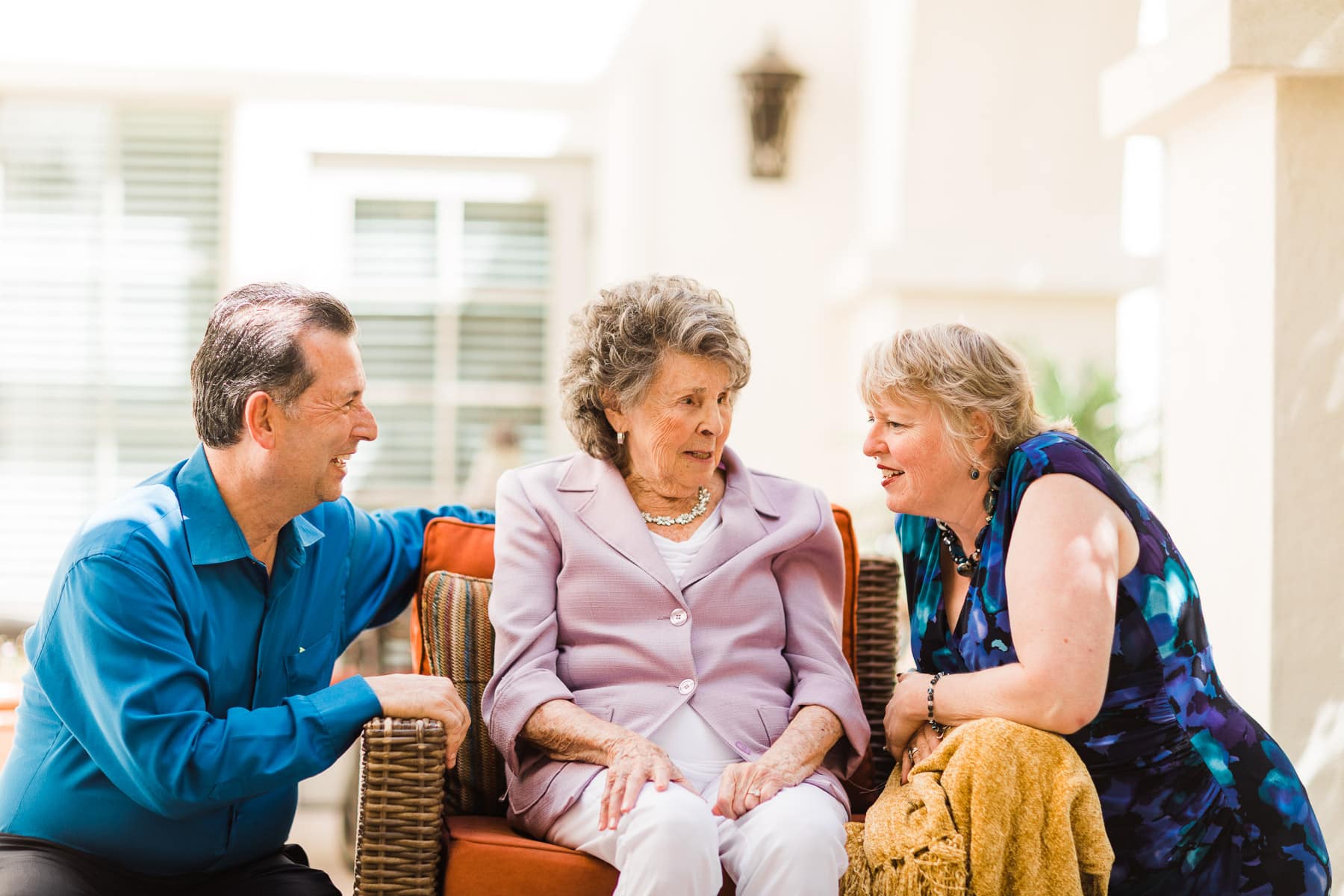Depression is common in older adults, but many don’t seek the help they need.
Some seniors may attribute their symptoms to another illness or dismiss them as just a normal part of aging, but there are treatments that can help these symptoms and improve quality of life.
Learn how to help a senior with depression, including recognizing the signs and symptoms and understanding the causes and available treatments.
What is depression?
Depression, also known as clinical depression or major depressive disorder, is a serious mood disorder that affects how you think, feel, and navigate daily activities.
While it’s normal to experience periods of sadness, especially following a death or major life change, depression symptoms generally must be present for at least two weeks for a proper diagnosis.
Depression is common among older adults, and especially in those who are lonely, grieving, or suffering from dementia, pain, or another chronic illness.
Depression in older adults often manifests differently than in younger people, and has different causes, which also can make those suffering dismiss their symptoms.
What are the symptoms of depression in the elderly?
Younger people suffering from depression often feel sadness or a depressed mood.
In older adults, this frequently isn’t the case. Instead of feeling sad, they often feel a lack of energy or motivation, or even physical symptoms.
Here are other common symptoms of depression in seniors:
- Unexplained or worsening pain
- Lack of interest in social activities or hobbies
- Changes in appetite and weight loss
- Feeling hopeless, helpless, or empty
- Sleep issues
- Slow movement or speech
- Memory issues
- Irritability
- Difficulty paying attention
- Feeling like they are a burden
- Skipping personal care and hygiene
Depression symptoms can be more difficult to recognize in seniors for several reasons.
Often, it can go hand in hand with another illness, so a senior may dismiss the symptoms.
They also may feel uncomfortable complaining or expressing how they feel, or they may be isolated and don’t have friends or family around to talk to or recognize the symptoms.
Senior loneliness and isolation is common, and can lead to serious health risks.
Let’s explore other common causes of depression in older adults.
What are the causes of depression in older adults?
Learning how to help a senior with depression begins with understanding the potential causes.
Older adults may be facing multiple life changes that can trigger symptoms of depression.
Chronic Illness or Pain
Chronic illnesses, pain, disabilities, surgeries resulting in body image issues, and even the medications associated with these health issues all can contribute to depression.
Symptoms of depression also can be similar to those of dementia, including memory problems, slowed speech and movement, and lack of energy and motivation.
A doctor will be able to perform tests to determine the cause of these symptoms.
Recent Loss
Older adults may be experiencing many losses, including spouses, friends, family, and even beloved family pets.
Grieving these painful losses is normal, but also can lead to depression over time.
If a senior loved one’s grief doesn’t subside over time or causes a complete lack of joy or laughter, they may be experiencing depression.
Loneliness and Social Isolation
As your loved one faces losses, decreased mobility, or living alone, they may develop symptoms of depression if they become lonely or socially isolated.
When a person is lonely, they feel alone no matter the amount of social contact they receive. If they are socially isolated, they lack social connections.
Social isolation increases the risk of dementia by about 50%, and also increases the risk of depression and anxiety.
Fear and Anxiety
Anxiety and depression are often linked. As your loved one ages, they may feel increasing anxiety about a health situation, financial problems, or physical limitations.
These constant fears and anxiety can lead to symptoms of depression, including helplessness and hopelessness about their situation.
How to help a senior with depression
The first step in treating depression is to seek help from a medical professional.
Your loved one’s doctor can perform tests to determine whether the cause of their symptoms is another health issue, a medication side effect, or depression.
While treatments for depression are available, including talk therapy and certain medications, there are several healthy lifestyle changes you can help your loved one to make that may provide purpose and improve their quality of life.
These lifestyle changes include:
- Joining a support group
- Volunteering
- Adopting a pet
- Taking a class or joining a club
- Aiming for 7-9 hours of sleep a night
- Eating a balanced diet to boost brain and heart health
- Exercising
Based on your loved one’s unique health needs, you can determine the amount of support you should provide to assist them with these changes.
For example, you can provide transportation for support groups or errands, prepare meals, schedule weekly visits with family, or plan outings.
Consider encouraging other family members to get involved as well.
How Kensington Place Redwood City supports mental health
Kensington Place is driven by a simple yet powerful Promise: to appreciate and honor each resident as if they’re our family.
Our team wants our residents to wake up each day happy and thriving.
With this promise guiding each and every day, we are able to provide the type of environment where your loved one can grow in confidence, purpose, and joy.
Our community is fueled by exceptional care, companionship, and love.
We fill our residents’ days with fun activities, an active social life, comforting routines, and delicious foods — and all aspects are catered to your loved one’s unique preferences.
Reach out to us today to hear more about our assisted living and memory care communities, and all the ways we can support your loved one’s health, wellbeing, and overall quality of life.



